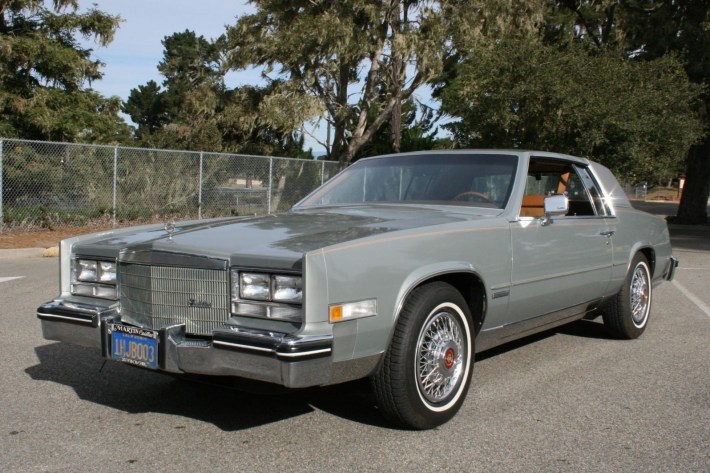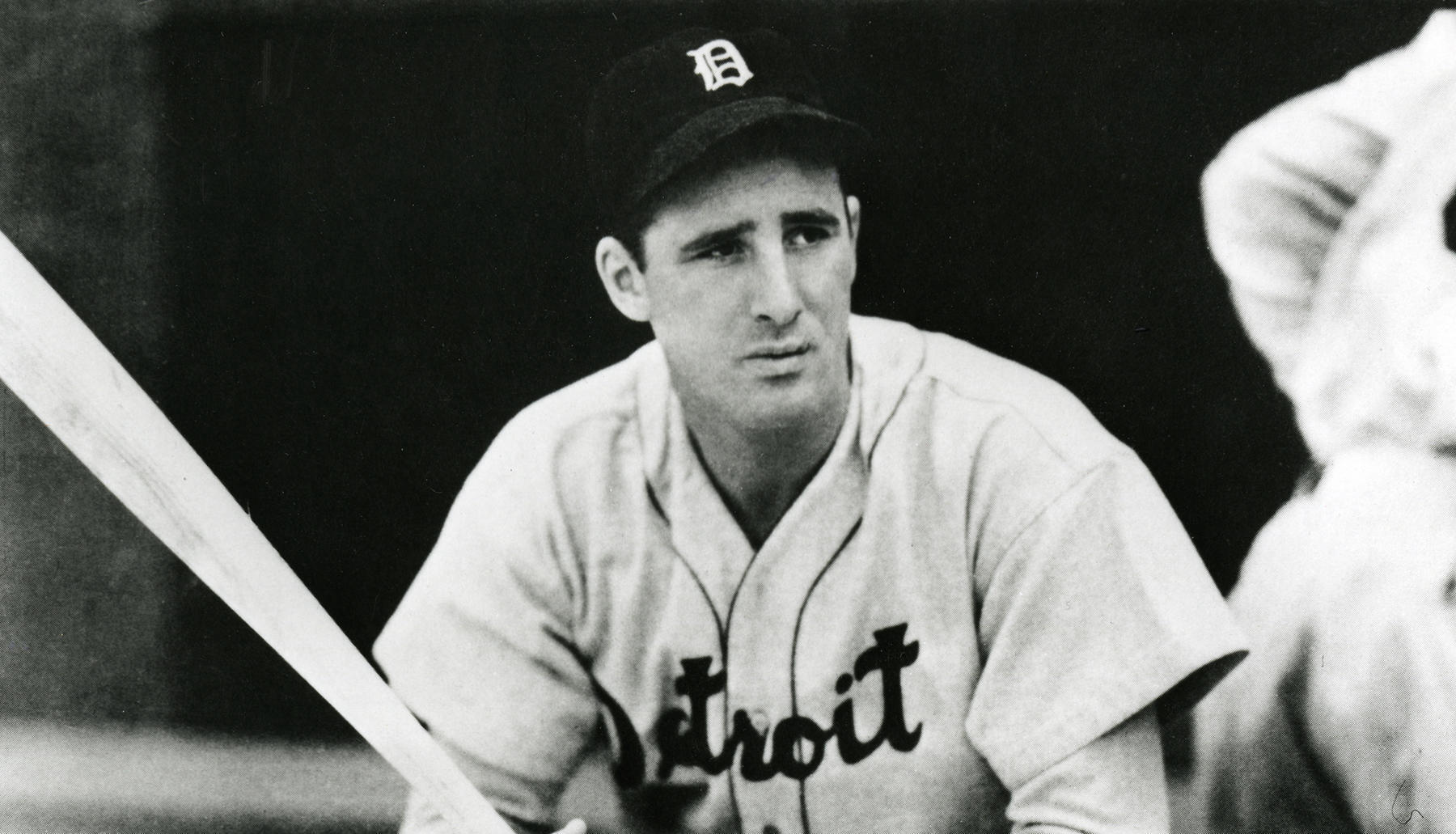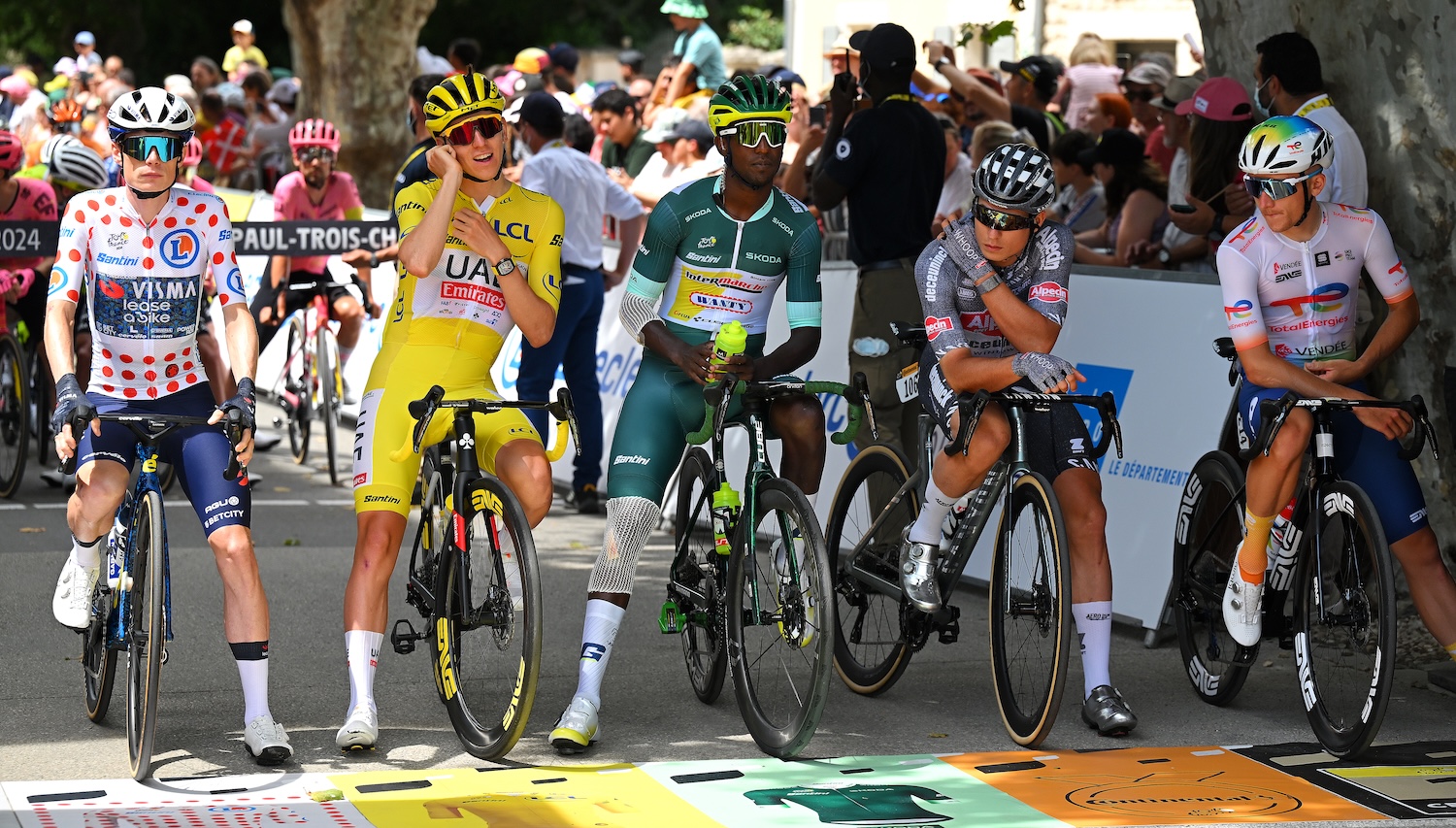The used car website Bring a Trailer has a silver 1983 Cadillac Eldorado with extremely low mileage up for sale. The site has tens of thousands of autos up for auction.
Why is this ride different from all other rides?
Well, it was Hank Greenberg’s car.

More specifically, this particular Caddie was the last auto ever bought by Greenberg, a Hall of Fame slugger who spent his glory years with the Detroit Tigers. Greenberg, who was twice named the American League MVP and was the first of only four players in baseball history to win the award at two different positions, died in 1986 in Beverly Hills. He was 75.
According to the online wanted ad (cached version here), the Eldorado now has only 26,000 miles, and all but "about 8k" of them were Hank's. Along with standard used-car tchotchkes including repair receipts, a Carfax report, and owner’s manuals, the auction winner will also receive “copies of baseball-related photos from Greenberg’s collection,” including a shot of him and Babe Ruth together, and a letter of authenticity signed by his second wife, Mary Jo Tarola. (Greenberg’s widow, an actress also known by her stage name, Linda Douglas, died in 2017.)
His son, Steve Greenberg, a former deputy commissioner of Major League Baseball and the founder of the television network that would become ESPN Classic, confirmed to Defector that the 1983 Caddie was indeed Dad’s automobile. The younger Greenberg also says that the handwriting on the letter of authenticity “definitely” belongs to Tarola, his late step-mother. And, he says, no rollback of the odometer was required to come up with the incredibly low mileage count on the nearly 40-year-old car.
“My dad drove from his house in Beverly Hills to the Beverly Hills Tennis Club seven days a week, a trip of 2.2 miles each way,” says Steve Greenberg. “And that was about it!”
Hagerty, a vehicle appraisal service, puts the average value of a 1983 Cadillac Eldorado with regular mileage and owned by any Joe Schmoe at $6,400, while pristine, showroom-quality examples have fetched up to $23,100.
Phil Wood, a memorabilia collector and baseball historian, as well as a longtime sports-talk and television host in Washington, D.C. and Baltimore, says Greenberg souvenirs normally fetch a big price. A used car unrelated to his playing days, however, won't likely excite the memorabilia market.
"Greenberg cards contemporary to his career in really good condition go from anywhere from hundreds to thousands of dollars," says Wood. "A genuine Greenberg jersey would go for tens of thousands. His car from later in life—not so much. I'm sure there are some passionate Greenberg fans who would flip for something like that, but in general, it's a yawner."
The offers so far indicate Wood is right: As of deadline for this story, the bidding on Greenberg’s Cadillac was up to just $7,500. The auction ends on Feb. 10.
Because of this particular auto’s provenance, the average memorabiliac might assume its appeal would go beyond Cadillac collectors and run-of-the-mill auto buffs. Greenberg, who grew up in the Bronx, was the first Jewish-American superstar athlete.
He knew he was an anomaly when he showed up in the big leagues in 1932. “There weren’t very many Greenbergs playing professional baseball,” Greenberg deadpanned in a scene from Aviva Kempner’s 1998 documentary, The Life and Times of Hank Greenberg. Kempner’s film was named Best Non-Fiction Film by the New York Film Critics and won a Peabody Award.
Greenberg's religion and day job left him conflicted in 1934, when two high holy days fell during the season. After consulting with rabbis, he played on Rosh Hashanah, and hit two homers in a win over the Chicago White Sox. But he took a lot of heat from those who shared his faith for having played, and after further deliberations decided to sit out a game on Yom Kippur a week later. He is believed to be the first American athlete to take a day off for religious reasons. Decades later, Sandy Koufax would cite Greenberg as his role model when he benched himself for Yom Kippur. The Detroit Free Press, which had run a headline with "L’shana Tova Tikatevu!," which translated from Hebrew to “Happy New Year,” on its front page to fete Greenberg on Rosh Hashanah, published a poem in honor of the local hero's godly Yom Kippur furlough. Here's a sample couplet: “We shall miss him on the infield and shall miss him at the bat / But he's true to his religion—and I honor him for that!”
So while Greenberg’s career achievements were HOF-worthy, from the start the 6-foot-4, 210-pound first baseman (later converted to outfielder) was more than a sports hero. “Not only was he one of us, somebody we could be proud of,” said Carl Levin, a Detroit native and lifelong Tigers fan who grew up to be the first Jewish U.S. senator representing Michigan, in Kempner’s documentary. “But he sort of validated that this was the land of opportunity, look, we can even play baseball! And half of us don't even understand the game!”
Greenberg faced antisemitic abuse from fans not only on the road, but at home games. “Christ killer!” was a typical heckle. When Greenberg arrived in Detroit, the city was a hub of American antisemitism. A local preacher, Father Charles Coughlin, leader of the locally based National Shrine of the Little Flower Basilica Catholic Church, gained national fame by spouting hate fantasies about Jewish conspiracies theories on weekly radio broadcasts.
The Motor City was also home to Henry Ford. Along with founding an eponymous Big Three automaker and being the only guy in town who in that era could compete with Greenberg’s renown among the locals, Ford was an aggressive antisemite. A company he owned, Dearborn Publishing, produced The International Jew: The World’s Foremost Problem, a series of books which bogusly outlined a Jewish plot to take over the globe. According to the U.S. Holocaust Memorial Museum, Ford sold or otherwise distributed 500,000 copies of the books. Ford also released an English-language version of The Protocols of the Elders of Zion, another publication meant to foster hatred and mistrust that originated as a hoax in Russia at the beginning of the 20th century; much of The International Jew was based on The Protocols. Hitler referenced conspiracies from The Protocols in Mein Kampf.
Kempner says researchers for her film found that Ford gave away free copies of The Protocols at Ford dealerships. So while she was unaware that Greenberg owned a full-size Cadillac at the end of his life until she was informed of the online auction, she says it seems like the right car for her hero. And not just because Greenberg was a patriotic guy (he missed all or part of five seasons to serve in the U.S. Army during WWII) who could afford the most elite American make, or because he was in need of a vehicle that big to fit his frame.
“I knew he wouldn’t drive a Ford,” she said.
H/t to Jim and Joe
Correction: An earlier version of the story incorrectly said that Greenberg was the only player to win the AL MVP award at different positions. Robin Yount and Alex Rodriguez later matched Greenberg's feat. Stan Musial won the NL MVP as both an infielder and outfielder.







